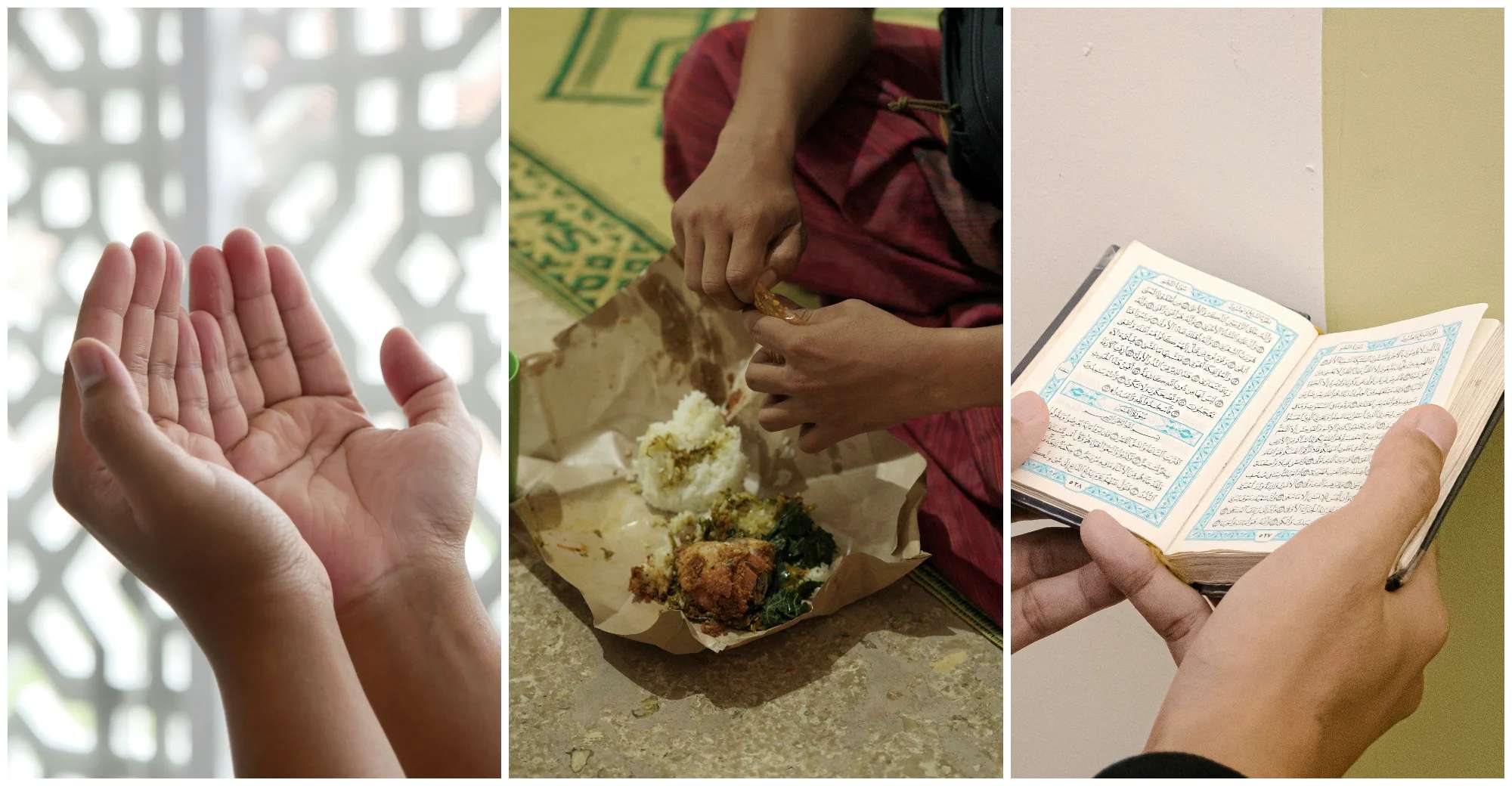Ramadan is a time where Muslims fast and strive to become closer to Allah.
Besides representing a symbol of unity, with more than 1.8 billion Muslims around the world fasting simultaneously, there's also the yearly challenge of waking up for the pre-dawn meal known as sahur.
As the days go by, it can get more tiring to wake up for sahur. While it's tempting to skip sahur and sleep in...
Perhaps the following reasons will change your mind!
1. Eating sahur is a blessing in itself
For anyone who is new to the term or is in need of a little refresher, sahur (which is sometimes written as suhoor or sahoor) is the pre-dawn meal Muslims eat before the day’s fast begins.
While it’s not obligatory for you to have sahur (it’s a sunnah, after all!), don’t underestimate the importance of it as it is a meal that is filled with blessings.
As the Prophet Muhammad (PBUH) said:
تَسَحَّرُوا فَإِنَّ فِي السَّحُورِ بَرَكَةً
“Have Sahur, for there is a blessing in Sahur.” [Al-Bukhari and Muslim]
One of those blessings is that despite how disorientating it may be to have to wake up for sahur, by partaking in it you’ll actually be able to ward off bad attitudes (like being overtly grumpy or snappy) during the day that may be caused and provoked by hunger.
It can help you get a good start on maintaining a calm and level-headed attitude throughout the day, to avoid swearing or other bad habits you may be trying to change.
2. It differentiates Muslims from the people of the Book
Did you know that besides Islam, other religions also practice the act of fasting?
Some of those include Buddhism, Christianity, Judaism, Taoism, Jainism, and Hinduism.
As Muslims, we are required to avoid imitating them and as stated by The Prophet Muhammad (PBUH):
“The difference between our fasting and the fasting of the people of the Book is eating suhoor.” [Muslim]
In addition, it is also said that Allah ﷺ places goodness in the activities of the one who partake in sahur so that they may be guided into doing good deeds throughout the day; such as performing obligatory and voluntary acts of worship, reciting du’as and performing acts of charity.
3. Sahur can be simple and easy.
The act of eating sahur was purposely made to be easy. While in recent years, we’ve seen a trend of people having full-fledged meals for their Sahur, (some can actually be prepared beforehand or even in 15 minutes as proven by these tried and true recipes!).
In actuality as long as you consume something for the pre-dawn meal with the intent of fasting the next day, it would be sufficient for getting the reward or blessing of having taken sahur.
The Prophet Muhammad (PBUH) stressed the importance of having sahur so much that he told believers:
"Eat Sahur, even if [it was only] a gulp of water," [As narrated by Ans Ibn Malek, Al Khodary, Abd Allah Ibn Amr, and declared authentic by Al Albany]
So rest assured that if you don’t have the time to prepare a feast for sahur, there’s no harm in keeping things simple!
4. It keeps us going throughout the day
Among the blessings of taking sahur is that it gives us the extra energy boost needed to go about our day to day life - performing acts of obedience and worship and going about our jobs without feeling overly tired or drained. The Prophet Muhammad (PBUH) said:
"The people will continue to prosper as long as they hasten to break the fast and delay the Suhoor." [As narrated by Al-Bukhari and declared authentic by Sahl ibn Sa’d As-Saa’idi.]
By eating the pre-dawn meal, not only will we able to maintain our stamina, but we will also be able to avoid being stricken by tiredness easily during the duration of our fast.
5. It helps you attain the salutations of Allahﷺ and His angels
Another blessing of taking the pre-dawn meal that makes it worth waking up for is the fact that the time of sahur is considered to be a blessed time.
"Allah and his angels definitely send salutations on those who eat Suhoor." [As narrated by Ibn Hibbaan and At-Tabaraani in Al-Awsat.]
When it comes to sahur, it is sunnah to delay the taking the pre-dawn meal until before dawn, rather than eating it closer to midnight or even earlier.
As narrated by Anas Ibn Malik:
"We took the Suhur with the Prophet. Then he stood for the prayer." I asked, "What was the interval between the Suhur and the Adhan?" He replied, "The interval was sufficient to recite fifty verses of the Qur'an."
It is at this time that is said that Allah will descend his courtesy, forgiveness and mercy on those who eat sahur while His Angels call and ask for forgiveness on our behalf.
Furthermore, by waking up and taking sahur, a person is also more likely to answer the call to Fajr prayer on time, which also has its own great rewards.
There is a great deal of blessing and goodness - both spiritually and worldly in waking up for Sahur.
Besides being able to help give us strength for worship and helps us obey Allah during the day, taking sahur can also help keep is in a good mood when we interacting with others and help us maintain a good relationship with those around us. In addition, by eating sahur, we will also be following the Sunnah - which makes eating the pre-dawn meal an act of ibadah (worship) in itself.
By following the Prophet Muhammad’s (PBUH) example of what we should do during Ramadan, we will be rewarded for it accordingly and will be able to receive the salutations of Allahﷺ and His angels; which is all the more reason why we should wake up for sahur and start your fast right!


